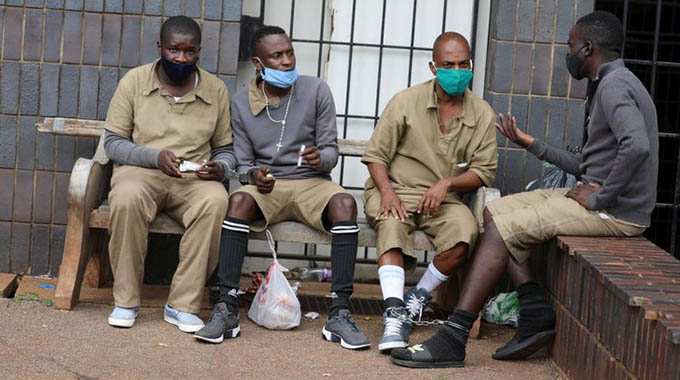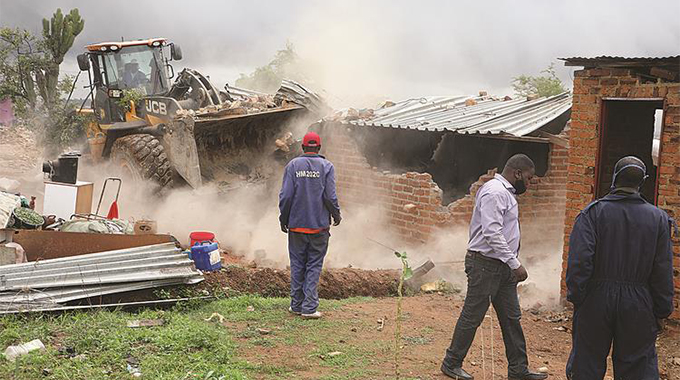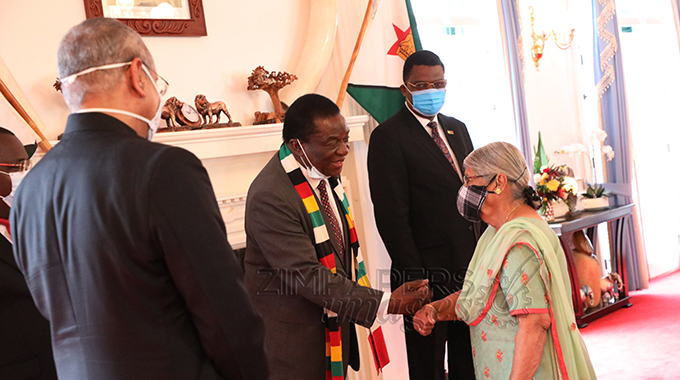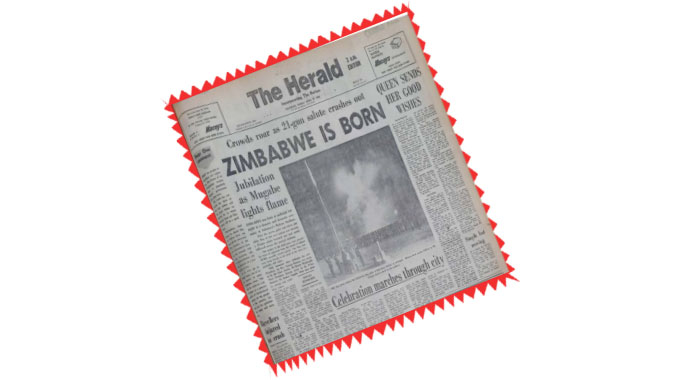Notorious criminal’s case spotlights justice system

Herald Reporter
THE country justice delivery system has come under the spotlight following the suspicious granting of bail of a suspected armed robber Musa Taj Abdul, who despite having been on the run for more than 20 years, almost tasted freedom after the State consented to his application.
Although Abdul (47), along with his alleged accomplices Godfrey Mupamhanga (27), Rudolf Tapiwa Kamhanga (29) and Douglas Mutenda (31) were subsequently locked up, as they are facing fresh charges, fears abound that this could be a tip of the iceberg of corrupt syndicates in the justice delivery system where more criminals with lesser profiles are likely slipping under the radar and going scot-free.
The prosecutor Tapiwa Kasema, who consented to the granting of bail to the suspected robbers and then went into hiding, has since been arrested and is assisting police with investigations in a case insiders in the judiciary say could open a can of worms.
According to a report of armed robbery cases and warrants of arrests at the country’s courts, more than 50 suspected criminals were granted bail by the High Court from June to November, in what insiders say is a curious pattern that warrants spotlighting the whole justice delivery chain.
“There is a routine where a magistrate denies bail to a suspect and then that suspect appeals to the High Court and is then granted bail with the State consent and the judge does not do anything about that,” said a source.
While the Minister of Justice Legal and Parliamentary Affairs Ziyambi Ziyambi could not comment on the alleged pattern that is seemingly emerging of suspects getting bail easily, he said the case of Abdul raised a stink.
“This is a terrible case. Someone was on the run, he obviously has no fixed abode and he is given bail. That is unacceptable. Even though we respect their independence, there is no way a person who was on the run and was arrested during a shootout can then get bail. Even if they say the prosecutor did not oppose bail, the judge should have noticed this, this whole case raises eyebrows,” said Minister Ziyambi.
The acting secretary in the Judicial Service Commission (JSC) Ms Faith Mushure declined to comment on the matter but investigations previously carried by this publication reveal a pattern whereby lawyers and litigants are now shopping for a High Court station, sometimes preferring to go halfway across Zimbabwe from anyone connected with the case hoping for a favourable judgment.
Recently, some criminals seeking bail pending their appeals, who separately lost bail applications at the High Court in Bulawayo, quickly engaged new lawyers and misled the High Court in Harare into freeing them without disclosing their initial bail attempts.
Litigants and lawyers end up abusing the law, literally cherry-picking judicial officers who should handle their cases.
In some civil cases, a plaintiff who stays in Bulawayo together with the defendant, may for suspicious reasons, file summons at the High Court in Harare or Mutare.
Such leeway has fuelled corruption and is likely to defeat the spirit of decentralising the courts.
An investigation by The Herald revealed that three convicted persons were granted bail pending appeal by the High Court in Harare through misrepresentation to other courts.
Despite losing their bail applications in Bulawayo where they were convicted of their crimes, the convicts approached the High Court in Harare where they were treated as first-timers.
The High Court had to revoke their bail orders after staff at the Bulawayo Magistrates’ Court discovered the scandal when the relatives of the convicts were paying bail money.
Matthias Mutemabundo who was convicted of nine counts of theft and jailed 48 months at Bulawayo Magistrates Court (Tredgold) lost his initial bid for bail pending appeal at the High Court before fraudulently approaching the High Court in Harare where Justice Msithu freed him on bail.
Mutemabundo was being represented by Mr Simon Chabuka of Magaya-Mandizvidza Legal Practitioners.
It was never brought to the court’s attention that the convicted person had been denied by the same court, sitting in Bulawayo. Bail was revoked on December 13 last year.
In terms of the law, he could have appealed to the Supreme Court or filed an application for bail on changed circumstances.
In another bail scandal Norest Ushe, a Zimra official who was jailed in Bulawayo for over a vehicle importation scam involving criminal abuse of office, lost his bail application at the High Court in Bulawayo.
Without disclosing his first bail attempt, Ushe through Mr Admire Rubaya of Rubaya and Chatambudza Legal Practitioners, filed another bail application before Harare judge Justice Foroma who freed him on $5 000 bail.
It also later turned out that bail had been fraudulently granted, resulting in the Harare High Court revoking the bail order.
Jefat Chagadama who was also convicted of a criminal offence and jailed by a Bulawayo magistrate, had his application for bail pending appeal thrown out but approached the High Court in Harare where he was freed on $500 bail by Justice Tawanda Hebert Chitapi.
He was represented by Mr Oliver Marwa of Rubaya and Chatambudza Legal Practitioners.
Bail was revoked after it came to light that the convict had misled the court.
A mining dispute involving Border Timbers Limited (under judicial management) and Kuguta Kushinga Mining Syndicate was determined by Manicaland provincial mining director in Mutare on March 10 this year but the appeal, for unclear reasons, found its way to Masvingo High Court.
The Herald understands the case had been set down for hearing in Masvingo but the judge noticed the anomaly and referred the matter back to Mutare.
The MDC-A, which is headquartered in Harare, for unclear reasons, sued President Mnangagwa and the Reserve Bank of Zimbabwe (RBZ) at the High Court in Masvingo under Masvingo HC424/19.
In that suit, the opposition party was challenging the constitutionality of Statutory Instrument 212/2019 which restated the exclusive use of the Zimbabwean dollars for all domestic transactions.
Mr Tendai Biti represented the MDC-A.
The MDC-A also challenged SI 213 which criminalises the trade in foreign currency through civil penalties.
In another case Harare lawyer Ms Beatrice Mtetwa sued the Judicial Service Commission, which is headquartered in Harare and President Mnangagwa in Masvingo under Masvingo HC282/18.
Ms Mtetwa was contesting the outcome of the public interviews for four Supreme Court judges held on September 29 2016.
In the application, Ms Mtetwa was seeking an order compelling the commission to produce scoring sheets in respect of all candidates interviewed and a copy of the list of qualified nominees.







Comments